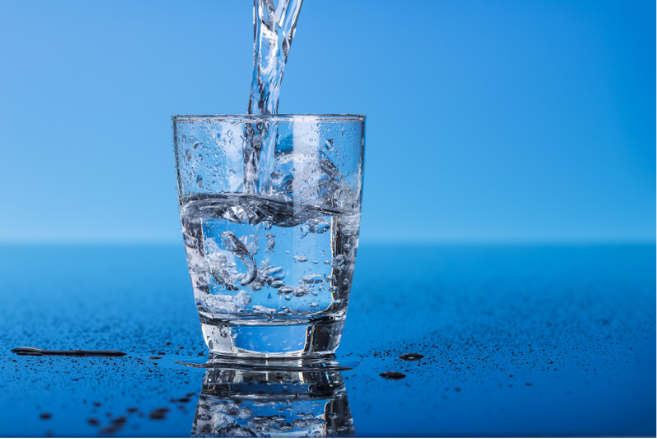The Leading Functions to Try To Find in a Water Purification System
Wiki Article
Why a Water Filtration System Is Necessary for Tidy, Safe Water
Accessibility to clean, risk-free water is a basic human right and a keystone of public wellness. A water purification system stands as a vital service to minimize these risks, guaranteeing that areas and people can access secure alcohol consumption water.Value of Tidy Water
Access to clean water is a fundamental need for human health and health. It is important for sustaining life, sustaining hygiene, and preserving overall public health and wellness. Water Purification System. The availability of risk-free alcohol consumption water substantially minimizes the danger of waterborne illness, which pose a considerable risk to areas worldwide. Polluted water can result in severe wellness concerns, consisting of intestinal illnesses, cholera, and dysentery, specifically in vulnerable populaces such as children and the elderly.Additionally, tidy water is vital for sanitation and health techniques, which are vital in avoiding the spread of infectious diseases. Sufficient supply of water sustains proper hygiene facilities, promoting a much healthier setting. In addition, access to safe water influences socioeconomic aspects, as it enables neighborhoods to engage in commercial and agricultural activities, ultimately adding to financial advancement.
In several areas, the lack of tidy water worsens hardship and inequality, further hindering progression toward sustainable advancement objectives. For that reason, making certain accessibility to tidy water is not just a public health necessary but additionally a keystone for social equity and financial development. Efforts to boost water quality and facilities have far-reaching advantages, cultivating much healthier neighborhoods and boosting lifestyle.

Typical Contaminants in Water
Ensuring the availability of tidy water is undermined by various contaminants that can compromise its safety and security and quality. The presence of microorganisms, such as parasites, microorganisms, and viruses, postures considerable health and wellness risks, particularly in areas lacking sufficient cleanliness. These microorganisms can lead to waterborne diseases, resulting in serious illness or perhaps death.Chemical pollutants also present a critical issue. Hefty steels, including lead, mercury, and arsenic, usually enter water materials through commercial discharges or rusty plumbing. These substances can accumulate in the body with time, resulting in long-term health problems such as neurological damage and developmental problems.
In addition, agricultural overflow introduces pesticides and plant foods into water systems, which can interfere with environments and adversely impact human wellness. Nitrates, typically discovered in fertilizers, can create serious problems like methemoglobinemia, particularly in infants.
Advantages of Water Purification Solutions
Recognizing the essential need for risk-free drinking water, water filtration systems use a myriad of benefits that enhance public health and wellness and ecological sustainability. Largely, these systems effectively eliminate hazardous contaminants, consisting of germs, infections, heavy metals, and chemicals, making certain that the water taken in is cost-free from microorganisms and contaminants. This reduction in pollutants substantially lowers the threat of waterborne conditions, promoting total community health and wellness.Along with health and wellness benefits, water purification systems add to environmental sustainability by lowering dependence on bottled water, which typically produces excessive plastic waste. By making use of a filtration system, families can reduce their carbon impact and add to a more sustainable environment. Additionally, these systems can improve the taste and smell of water, making it more palatable for everyday usage.

Various Kinds Of Filtration Techniques

One typical technique is reverse osmosis, which uses a semi-permeable membrane to different water from liquified contaminants and solids. This process successfully lowers impurities, including heavy steels and chemicals. Another commonly made use of technique is ultraviolet (UV) sanitation, which utilizes UV light to neutralize viruses and microorganisms, rendering them harmless without using chemicals.
Activated carbon purification is one more preferred technique, making use of carbon to adsorb organic substances, chlorine, and unpleasant smells, Click This Link improving preference and odor top quality. Purification, a process that includes boiling water and condensing the vapor, effectively gets rid of minerals and pollutants but may require more energy contrasted to other methods.
Ion exchange is typically used to soften water by replacing calcium and magnesium ions with salt or potassium ions. Each method has its benefits and constraints, making it important to comprehend their functionalities and performance in resolving details water high quality problems - Water Purification System. Ultimately, picking the ideal filtration approach is critical for making certain tidy and safe drinking water
Picking the Right System
Selecting a proper water filtration system calls for careful factor to consider of different factors, consisting of the certain impurities present in the water system, the quantity of water needed, and the desired purification approach. First, it is vital to conduct a water quality test to recognize pollutants such as microorganisms, heavy metals, or chemical toxins. This information will assist you in choosing a system that properly targets those certain pollutants.
Following, analyze your household's day-to-day water consumption to establish the system's ability. Systems are readily available in various dimensions, from point-of-use filters for drinking water to whole-house devices that cleanse all water entering your home.
Additionally, consider the filtration technique that finest fits your demands. Reverse osmosis is extremely efficient for eliminating a broad array of pollutants, while UV purification is excellent for removing bacteria.
Verdict
To conclude, the implementation of water filtration systems is critical for making sure accessibility to tidy and secure water. These systems properly get rid of harmful pollutants, thereby minimizing the danger of waterborne illness and boosting public wellness. They add to ecological sustainability by lessening dependence on bottled water. try this website By comprehending the importance of clean water and the benefits of numerous filtration approaches, areas can make enlightened decisions to safeguard their health and promote socioeconomic security.Identifying the vital need for safe alcohol consumption water, water purification systems provide a myriad of benefits that improve public health and environmental sustainability.In addition to health and wellness benefits, water purification systems contribute to ecological sustainability by minimizing dependence on bottled water, which commonly creates excessive plastic waste. Eventually, the adoption of water purification systems is a positive action towards making certain tidy, risk-free water for future generations while guarding public health and wellness and the setting.
Choosing a suitable water purification system needs careful factor to consider of numerous aspects, including the specific pollutants existing in the water supply, the volume of water needed, and the preferred filtration method.In final thought, the application of water filtration systems Bonuses is crucial for ensuring accessibility to secure and clean water.
Report this wiki page